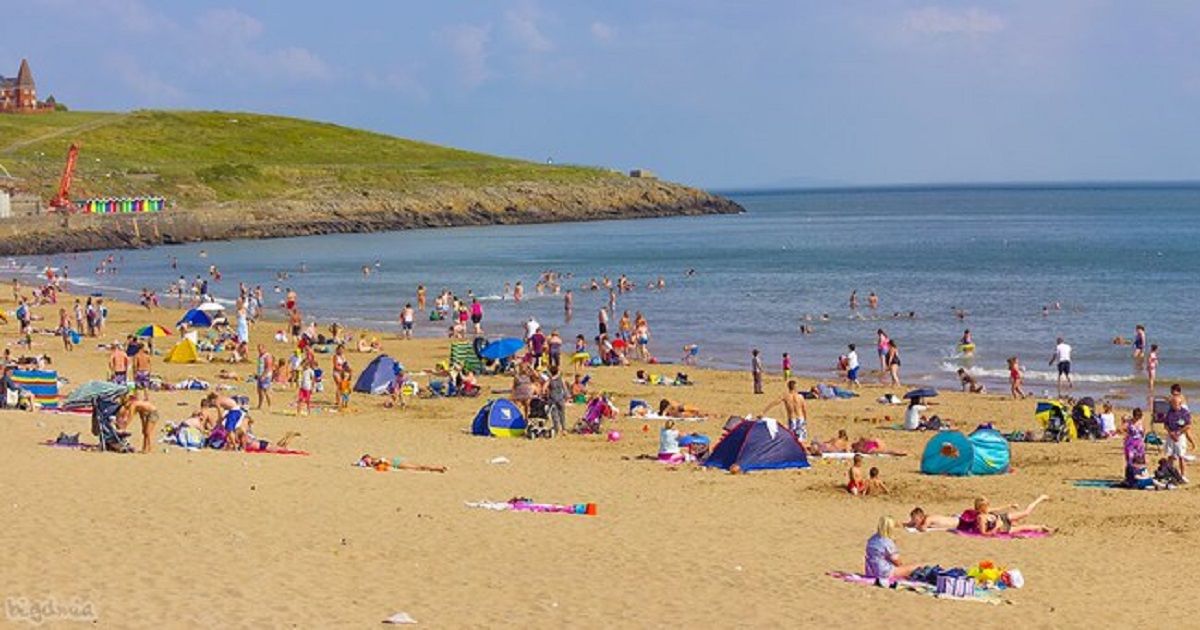Health chiefs issue advice on how to stay safe as Wales sizzles

As temperatures look set to soar and stay high over the next two weeks, Public Health Wales has issued advice on how to stay safe in extreme temperatures.
While the very young, older people and those with health problems and disabilities are particularly vulnerable to the heat, PHW advises everyone to take simple sensible steps to avoid over exposure to the heat.
Try to stay indoors, especially between midday and 3pm and avoid strenuous outdoor activities such as sport, DIY or gardening, or at least delay it until cooler parts of the day
As well as using sunscreens or sun blocks to help prevent sunburn, cover up with a t-shirt or other loose-fitting clothes and wear a hat to shade your head and sunglasses to protect your eyes
As tempting as it is to relax with cool beer, the advice is to drink plenty of water, at least eight glasses a day, and avoid alcohol, tea or coffee as they can make you dehydrated.
Taking a cool bath or shower, or splashing your face with cold water is effective to cool down, and having a paddling pool or even a washing up bowl to dunk your feet in can bring instant relief from puffy ankles and swollen legs.
Non-essential lights and electrical equipment can generate heat and while electric fans may provide some relief, they should only be used if necessary, as in dry heat they can accelerate dehydration.
Rooms can be kept shady and cool by closing blinds and opening windows, and opening them during the cool of early morning or preferably overnight, if safe to do so, allows stored heat to escape from the building.
Vulnerable
Children can be affected by high temperatures, especially those who have health or medical conditions and those under the age of four.
On very hot days (30oC+), children should not take part in vigorous physical activity and when playing outdoors, they should be encouraged to stay in the shade as much as possible
Dressing them in loose, light-coloured clothing can help children keep cool and hats of a closed construction with wide brims should be worn to avoid sunburn, along with sun creams and block, formulated for children and babies, for outdoor activities or lessons.
Children must be provided with plenty of cool water and encouraged to drink more than usual when conditions are hot.
It’s important to keep an eye on isolated, elderly, ill or very young people and make sure they are able to keep cool and ensure that babies, children or elderly people are not left alone in stationary cars.
The advice if you or others feel unwell
- Try to get help if you feel dizzy, weak, anxious or have intense thirst and headache
- Move to a cool place as soon as possible and measure your body temperature
- Drink some water or fruit juice to rehydrate
- Rest immediately in a cool place if you have painful muscular spasms (particularly in the legs, arms or stomach, in many cases after sustained exercise during very hot weather), and drink oral rehydration solutions containing electrolytes
- Medical attention is needed if heat cramps last more than one hour
- Consult your doctor if you feel unusual symptoms or if symptoms persist
Furry friends
The RSPCA is also stressing that people need to be extra vigilant with their pets during hot weather, ensuring they have shade, access to plenty of water, and are not exposed to all day heat on outings or holidays.
Not leaving them in cars is a message which has repeatedly been stressed, but it’s also important to not walk them in the heat of the day but wait until it is cooler in the morning or evenings, or if that isn’t possible take walks in shady places such as wooded areas.
Dogs can be susceptible to burning their feet on hot pavements and roads, and the current increase in use of artificial grass can cause ground temperatures to soar and cause serious injuries.
Try the 5-second test – if it’s too hot for your hands, it’s too hot for paws!
You can also look out for:
- Limping or refusing to walk
- Licking or chewing at the feet
- Pads darker in colour
- Missing part of pad
- Blisters or redness
Cool mats, wet towels and paddling pools can provide relief to pets in a heatwave, as can putting ice cubes in water bowls.
According to the RSPCA, help should be sought quickly if an animal displays symptoms of heatstroke, including
- Heavy panting and difficulty breathing
- Excessively drooling
- The dog appears lethargic, drowsy or uncoordinated
- Collapsed or vomiting
More advice on keeping pets safe in the heat can be found here
Support our Nation today
For the price of a cup of coffee a month you can help us create an independent, not-for-profit, national news service for the people of Wales, by the people of Wales.





